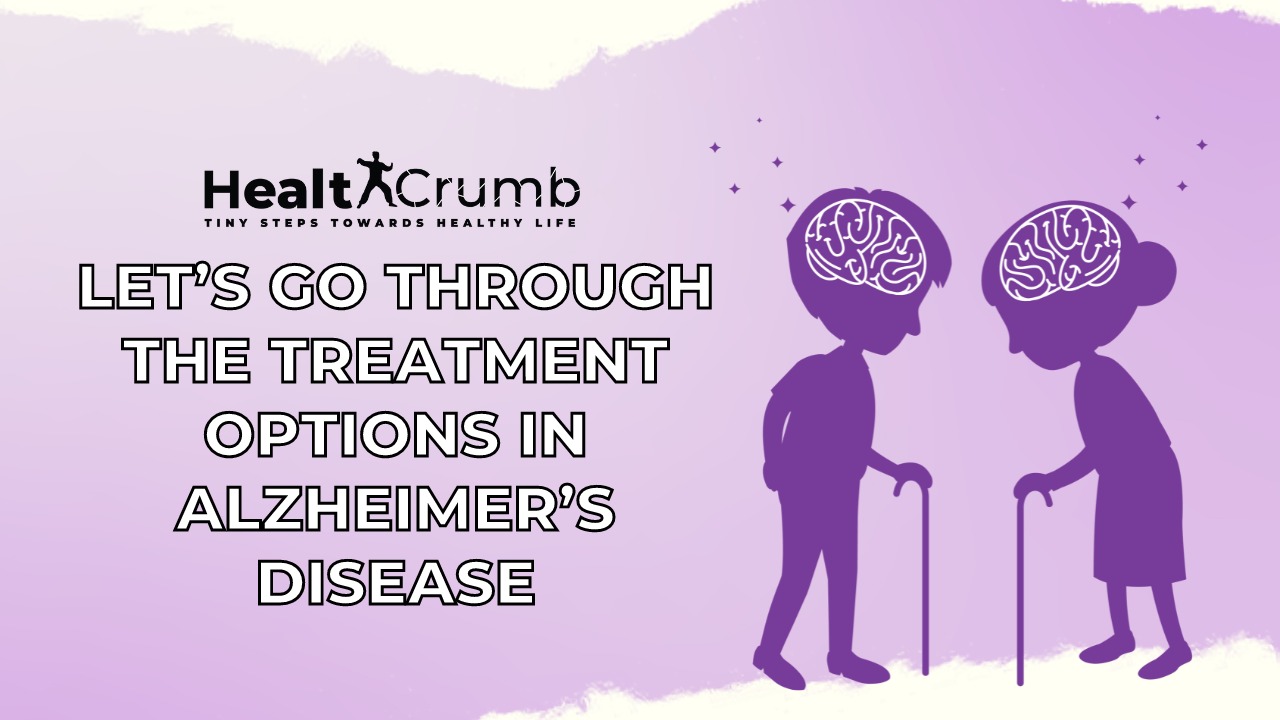Welcome to our blog post on the treatment options in Alzheimer’s Disease, where we will explore the different stages of this condition and delve into potential treatments. Alzheimer’s Disease is a progressive neurological disorder that affects millions of people worldwide, causing memory loss, cognitive decline, and behavioral changes. While there is currently no cure for Alzheimer’s Disease, there are various approaches available to manage its symptoms and enhance quality of life. So let’s embark on this journey together as we navigate through the treatment landscape for Alzheimer’s Disease!
What is Alzheimer’s Disease?
Alzheimer’s Disease is a complex and debilitating condition that primarily affects the brain, causing a gradual decline in memory, thinking abilities, and behavior. It is the most common form of dementia and typically occurs in older individuals. While exact causes are still unknown, researchers believe that a combination of genetic, environmental, and lifestyle factors contribute to its development.
In the early stages of Alzheimer’s Disease, individuals may experience mild memory loss or difficulty finding words. As the disease progresses into intermediate stages, cognitive impairment becomes more noticeable with challenges in completing daily tasks and maintaining independence. In advanced stages, individuals may lose their ability to communicate effectively or recognize familiar faces.
While there is no cure for Alzheimer’s Disease at present, several treatment options aim to manage symptoms and slow down its progression. Medications such as cholinesterase inhibitors can help improve cognitive function temporarily by boosting levels of certain brain chemicals involved in memory and learning processes.
Non-pharmacological approaches also play an essential role in managing Alzheimer’s Disease. These include creating a structured routine for daily activities, engaging in mentally stimulating exercises like puzzles or reading comprehension tasks, socializing with loved ones regularly to combat isolation,
It is important to note that each individual experiences Alzheimer’s Disease uniquely; therefore treatment plans should be tailored accordingly by healthcare professionals specializing in this area. By understanding what Alzheimer’s Disease entails from its initial symptoms to advanced stages,
we can better equip ourselves with knowledge on how best to support those affected by this challenging condition.
The Different Stages of Alzheimer’s Disease
Alzheimer’s Disease is a progressive neurological disorder that affects the brain, leading to memory loss, cognitive decline, and behavioral changes. While every individual may experience the disease differently, Alzheimer’s generally progresses through distinct stages.
In the early stage of Alzheimer’s, individuals may start experiencing mild memory loss and difficulty finding words. They may also have trouble performing routine tasks or organizing their thoughts. These symptoms can be subtle and easily overlooked initially.
As the disease advances to the middle stage, memory impairment becomes more pronounced. Individuals might forget important personal details like their address or phone number. They may struggle with problem-solving skills and become disoriented in familiar places. Additionally, mood swings and personality changes can occur.
In the late stage of Alzheimer’s Disease, severe cognitive decline occurs as communication becomes increasingly challenging for individuals affected by this cruel illness. Memory loss extends beyond recent events to include long-term memories as well. Daily activities such as eating, dressing, and using the bathroom require assistance at this stage.
Understanding these different stages helps caregivers provide appropriate support tailored to an individual’s needs throughout their Alzheimer’s journey.
Treatment Options
When it comes to Alzheimer’s disease, finding the right treatment options is crucial. While there is currently no cure for this progressive neurological disorder, there are various strategies that can help manage its symptoms and improve quality of life.
One common approach to treating Alzheimer’s is through medication. There are several drugs available that can temporarily alleviate symptoms such as memory loss and confusion. These medications work by increasing certain chemicals in the brain that are involved in learning and memory.
In addition to medication, non-drug interventions also play a significant role in managing Alzheimer’s disease. Cognitive stimulation therapies, such as puzzles or memory games, can help maintain cognitive function and delay decline.
Another important aspect of treatment involves addressing behavioral and psychological symptoms associated with Alzheimer’s. This may involve counseling or therapy sessions aimed at reducing anxiety or depression commonly experienced by individuals with the disease.
Furthermore, lifestyle modifications like regular exercise and a healthy diet have shown promise in slowing down the progression of Alzheimer’s. Physical activity helps improve blood flow to the brain while a balanced diet provides essential nutrients for optimal brain health.
It is important to note that each individual with Alzheimer’s may respond differently to treatments. Therefore, personalized care plans tailored to specific needs should be developed in consultation with healthcare professionals.
While there is still much research being done on potential breakthroughs for treating Alzheimer’s disease effectively, current treatment options focus primarily on managing symptoms and improving overall well-being for those affected by this devastating condition.
Clinical Trials
Clinical trials play a crucial role in advancing the treatment options for Alzheimer’s disease. These trials involve testing new medications, therapies, and interventions to determine their effectiveness in managing the symptoms and progression of the disease.
Participants in clinical trials are closely monitored by healthcare professionals who collect data on various aspects of their condition. This data is then analyzed to assess whether the experimental treatment shows promise or has any adverse effects.
By participating in clinical trials, individuals with Alzheimer’s and their families can contribute to scientific research that may lead to breakthroughs in understanding and treating this debilitating condition.
It’s important to note that not all clinical trials will yield positive results or lead to approved treatments. However, even negative outcomes provide valuable insights into the underlying mechanisms of Alzheimer’s disease.
If you’re interested in participating in a clinical trial for Alzheimer’s disease, talk to your doctor or reach out to research institutions or organizations conducting these studies. They will guide you through the eligibility criteria and explain what participation entails.
Engaging in clinical trials not only offers potential benefits for individual participants but also contributes towards finding better treatment options for future generations affected by Alzheimer’s disease.
Prevention
When it comes to Alzheimer’s disease, prevention is key. While there is no surefire way to completely prevent the onset of this devastating condition, there are steps you can take to reduce your risk.
One of the most important factors in preventing Alzheimer’s disease is maintaining a healthy lifestyle. This includes eating a balanced diet rich in fruits, vegetables, and whole grains, as well as staying physically active. Regular exercise has been shown to have numerous benefits for brain health and can help reduce the risk of developing cognitive decline.
Another crucial aspect of prevention is keeping your mind active. Engaging in activities that challenge your brain, such as puzzles or learning new skills, can help keep it sharp and may lower the risk of developing Alzheimer’s disease.
Additionally, managing chronic conditions such as high blood pressure, diabetes, and obesity is essential for reducing the risk of cognitive decline. These conditions have been linked to an increased likelihood of developing Alzheimer’s disease.
Staying socially engaged is vital for brain health. Maintaining strong social connections and participating in activities with others can help stimulate your mind and ward off cognitive decline.
While there are no guarantees when it comes to preventing Alzheimer’s disease, incorporating these healthy habits into your daily routine may significantly lower your risk. By taking proactive steps now, you’re investing in a healthier future for yourself!
Coping with Alzheimer’s Disease
Coping with Alzheimer’s Disease can be an overwhelming and emotionally challenging journey, both for the person diagnosed and their loved ones. It is important to remember that each person’s experience will be unique, as the disease affects individuals in different ways.
One of the key aspects of coping with Alzheimer’s is establishing a support system. This may include family members, friends, or even joining support groups specifically designed for those affected by the disease. Connecting with others who are going through similar experiences can provide emotional support and valuable insights.
Another crucial aspect is self-care. Taking care of oneself physically, mentally, and emotionally can help manage stress levels associated with caregiving responsibilities. Engaging in activities you enjoy, practicing relaxation techniques such as deep breathing or meditation, and seeking respite when needed are all essential components of self-care.
In addition to this, maintaining a routine can aid in managing daily tasks more efficiently while providing a sense of structure and familiarity for individuals living with Alzheimer’s. Creating visual cues or using assistive devices can also contribute to enhancing independence and reducing frustration.
Adapting communication strategies is another important aspect of coping with Alzheimer’s Disease. As memory loss progresses, it becomes necessary to find alternative means of connecting effectively. Using simple language, speaking slowly and clearly, utilizing non-verbal communication such as gestures or facial expressions – these approaches can facilitate better understanding between individuals.
Lastly but importantly: patience! Coping with Alzheimer’s requires immense patience from both caregivers and those diagnosed alike. The disease presents challenges that require flexibility in expectations and adapting to changing circumstances.
Remember that every day brings new opportunities to connect on an emotional level despite cognitive decline – cherish those moments!
Conclusion
In this article, we have explored the different treatment options available for Alzheimer’s Disease. We have learned about the stages of Alzheimer’s and how the symptoms progress over time. It is important to remember that while there is currently no cure for Alzheimer’s, there are treatments available that can help manage symptoms and improve quality of life.
We discussed the various treatment options including medications that can temporarily alleviate cognitive decline and behavioral changes. Additionally, non-drug therapies such as cognitive stimulation therapy and music therapy have shown promising results in improving memory and overall well-being.
Clinical trials also play a crucial role in advancing our understanding of Alzheimer’s disease and developing new treatment options. By participating in clinical trials, individuals with Alzheimer’s disease or those at risk for developing it can contribute to medical research efforts and potentially access innovative treatments.
Prevention strategies were also touched upon in this article. While there is no guaranteed way to prevent Alzheimer’s disease, adopting a healthy lifestyle including regular exercise, maintaining a balanced diet, engaging in mentally stimulating activities, getting enough sleep, managing chronic conditions like diabetes or hypertension may help reduce the risk.
We discussed coping mechanisms for individuals living with Alzheimer’s disease as well as their caregivers. Support groups provide an invaluable opportunity to share experiences and learn from others facing similar challenges. It is essential to prioritize self-care when caring for someone with Alzheimer’s as it can be emotionally demanding.
In conclusion (without explicitly stating so), although there is currently no cure for Alzheimer’s disease, early detection followed by appropriate management using medication or non-drug therapies offers hope in slowing down its progression and providing relief from associated symptoms. Furthermore (a more subtle transition), ongoing research continues to shine light on potential breakthroughs that could one day lead us closer to finding a cure for this devastating disease



